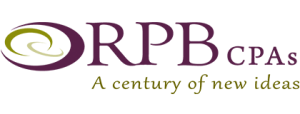Tax Reform & Retirement Planning
Should My Retirement Planning Change After Tax Reform?
As the Internal Revenue Service continues to forge ahead in writing regulations and opinions to help clarify the many gray areas in the largest tax reform in over 30 years, we as professionals also continue to research and explore areas in the revisions to help our clients save money, both now and down the road.
As most of us are aware, there are a number of different products available to fund retirement for employees, employers, and business owners. In order to determine what is the best product and method, not only do you need to consider the financial investment return aspect, but a good amount of focus should also be given to the tax impacts of the investment plans you choose as well. Most investment advisors do indeed think about aspect and help make the investor aware, but usually only from a time value tax impact. That usually means most advisors suggest considering the Roth type investments (those that offer no current tax deduction for the contributor now but avoid taxation in the future) to those young investors and those in lower income tax brackets and they default to the traditional pre-tax type investments to the older and higher wage earners.
In today’s “new” tax world we must look at many other factors to make sure that our clients are beating the system not only now, but in the future when it may matter even more. Under the revised tax law, a business owner may now be in a situation where the bulk of their current income is taxed at only 80% compared to the wages they earn. This may be a great opportunity for the implementation of some specialized compensation plans which defer tax deductions now. Although this may increase the current income over what it could be, it could shift income to years where these special tax rates are gone. Larger corporations may see even more benefit from this type of plan when looking at after tax dollars for the employee compared to the tax costs at the corporate level, meaning this compensation plan will actually cost them less today than the same plan did just last year.
The Roth investment may also be another area to explore. With proper planning and review, the Roth can now provide savings to many older and higher wage earners than they had in the past. Moving tax deductions and pre-tax income from the current tax return to future years can provide sizable savings when expectations arise that rates will increase or certain preferred tax benefits (such as in the new Reform) could disappear.
These are just a few of the things that your CPA needs to be thinking and planning for in order to keep you ahead of the curve when it comes to the ever evolving world of taxes. Don’t let your tax planning fall behind and cost you your hard earned money. Ask our team at RPB what you can do, and let us see how we can help to better plan for the future.


